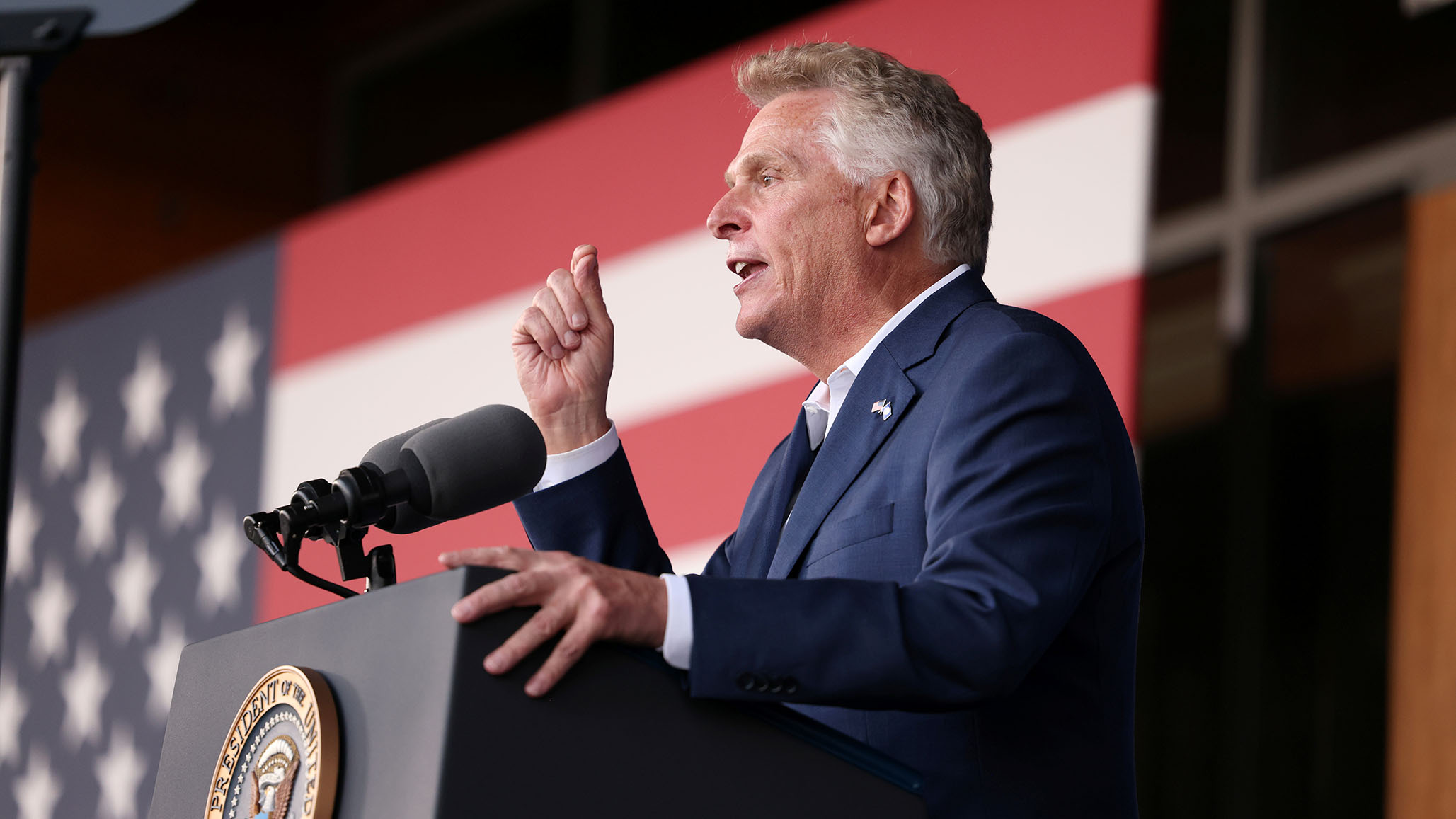Democrats profess to be alarmed at attacks on the legitimacy of elections. They feign horror at anyone who wants to investigate election integrity. If they really believe this, they sure do have a funny way of showing it.
The highest-profile election of 2021 is the Virginia governor’s race. The Democratic candidate is Terry McAuliffe, a former chairman of the Democratic National Committee, former governor, and faithful ally of Bill and Hillary Clinton. McAuliffe spent the George W. Bush years loudly claiming that Bush stole his election in 2000. That is not hyperbole: At the Democratic National Convention in 2004, McAuliffe bellowed to a rapturous crowd, on national television, “We actually won the last presidential election, folks, they STOLE the last presidential election.” In his 2008 autobiography, he wrote, “I was mad after 2000 because they stole it from us and we let them.” McAuliffe has continued in the subsequent years to claim that the 2000 election was stolen. When offered the opportunity to renounce that charge just this month, he declined to back off and argued (preposterously) that it was acceptable to call Bush’s election “stolen” simply because litigation over it reached the Supreme Court. To this day, McAuliffe will not concede that George W. Bush was legitimately elected president of the United States.
Worse, when pressed, McAuliffe tried to excuse his stolen-election claims by pointing out that he was the party chairman at the time. In other words, he said that Bush stole the election because saying that was his job; it didn’t matter whether he believed it or not. As one admiring John Kerry adviser told the New York Times in 2004, “Terry is a very valuable player. Terry will say anything.”
When conspiracy theorists on the Left charged that Bush’s 2004 reelection had been stolen, too — recall the Diebold-voting-machine panic — McAuliffe, as the party chair, knew full well that there was nothing to it. “I’d have been ready to fight on for years, if that was what it took — but Kerry’s Ohio people were sure,” he wrote in 2008. “We had lost and it was time to move on.”
But in 2004, did he tell the crazies in his party to move on? No, he commissioned a “Comprehensive Investigative Study on Election Practices in Ohio” to “address the legitimate questions and concerns that have been raised in Ohio” including “anomalies in the reported results as compared with exit polls, historical data, and reported anomalies within counties and precincts and whether the touch-screen machines and tabulating systems functioned properly.”
“We owe it” to the voters, McAuliffe said in December 2004, to “understand what happened” and “conduct a thorough investigation into various election administration issues that arose in the state of Ohio in the 2004 election.” To that end, he pledged to hire “a political scientist expert in quantitative analysis; an expert or experts in the design of computer hardware and software systems; an expert in voting systems and machines; an investigator with forensic expertise; and a pollster to survey voters who cast provisional ballots and to conduct other original survey research as needed.” All this to “investigate” a state George W. Bush carried by more than 118,000 votes.
McAuliffe left this investigation to run for the next six months under his successor, Howard Dean. It ultimately produced a 200-page report that warned darkly of “Democracy at Risk” and charged that voting machines without a “proper chain of custody” were “a system that is vulnerable to tampering, covert manipulation and fraud.” Yet much like the Arizona Republicans’ audit in Maricopa County that ended up confirming Joe Biden’s victory, the report was compelled to concede that it found “no reliable evidence of actual fraud in the use of these machines in Ohio in 2004.” But then, that was never the point; making a show of declaring the questions legitimate and investigating them was. In a 2019 appearance on Bill Maher’s HBO show that was resurfaced by the Washington Free Beacon, McAuliffe said he was “very concerned” about the integrity of the 2020 election, explaining that as governor he moved away from voting machines after an investigation revealed them to be easily hackable. Does anyone doubt that, if the party roles had been reversed in 2020, Terry McAuliffe would have pushed the Maricopa County audit?
Refusing to accept the legitimacy of elections has been a Democratic Party tradition the past 20 years, from Hillary Clinton to Stacey Abrams. Two decades of hearing this has convinced all too many Republicans that what is good for the goose is good for the gander, a sentiment that Trump has exploited in his outlandish, ongoing war against the 2020 outcome.
Although Trump is obviously in a class by himself, it’s wrong for anyone to cynically cast doubt on legitimate elections. There are many reasons why Terry McAuliffe shouldn’t be the next governor of Virginia. His election trutherism is one of them.
Something to Consider
If you valued reading this article, please consider joining our fight by donating to our Fall Webathon. Your contribution makes it possible for us to continue our mission of speaking truth and defending conservative principles.
